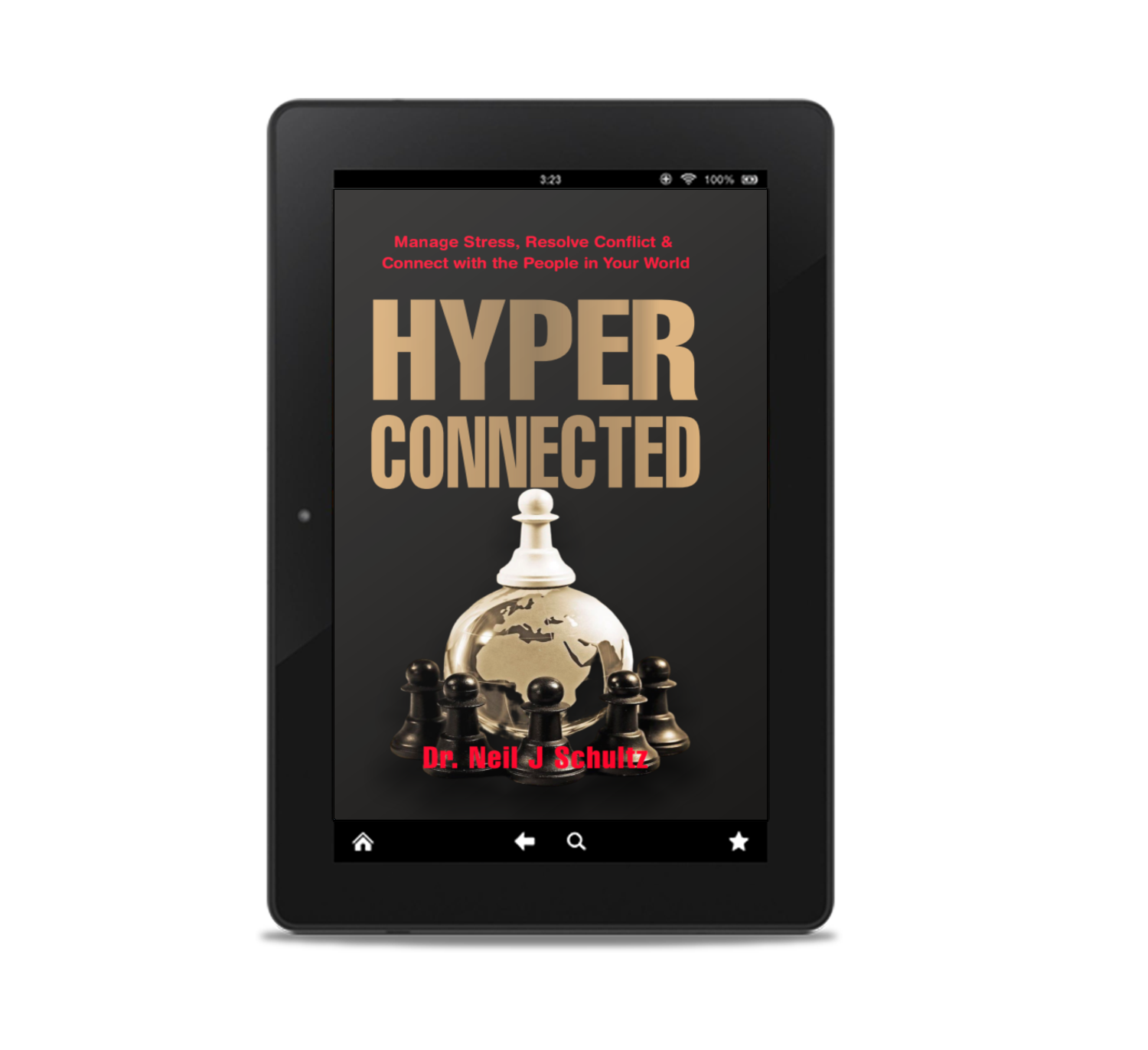A Failing Middle Manager
This is a discussion about a young man who decided to seek our assistance after he found himself struggling at work after he was promoted. It highlights a number of issues: First, that it is important for employers to train the people they promoted from ‘the floor’ to managerial roles. Second, that one of the ‘secrets’ to successful leadership is not how well you can do the job, it’s how well you can understand people and encourage those people to exceed their own expectations. For privacy, I will be using false names in the discussion, but the facts are unchanged.
The Discovery Call
Peter first purchased my book, Hyperconnected, and after reading it, decided to arrange a meeting to discuss whether we would be able to help him. During this initial meeting, Peter told me about the problems he had been facing. He was working in a busy corporate environment as a product manager (PM), and he explained in some detail what a PM’s role was. Simply put, the PM’s role was to provide a bridge between the potential client and the development team to ensure that the company’s investment in the development of a new product would serve the people they hoped to assist.
Peter was a late starter to this type of career, and in fact, his prior experience was quite different. He had a BA in history and had worked for a government department doing mundane task-oriented work. When he accepted his initial role as an associate PM, it wasn’t long before he discovered that he enjoyed the work. It was interesting, allowed him to have a sense of ownership over what he was doing, and it felt that his contribution was valuable to the company. He progressed well over a couple of years and both he and his employer were very satisfied with his progress.
At about this time, his employer offered Peter a promotion to a full PM’s role. This role involved greater independence of his activities and also meant that he would have greater responsibility for engaging with other members of the team and potential clients. He was anxious to do well and happily accepted the new role.
While he worked as an associate, his senior PM provided almost all the structure for the day-to-day activities of his job. This included being told when and who he should be interviewing and being provided with guidelines for the next activities he would face. To some extent, since Peter was a little older, it was assumed that Peter’s ‘soft skills’ were better than they turned out to be.
In a recent feedback session with the senior, he was told that the people he worked with found him to be difficult and that he seemed to take offence in meetings. His colleagues were reluctant to talk to him because they were worried he would take offence if they asked questions or challenged his ideas.
Peter knew he was struggling to perform and was keen to improve, he still wanted to do well and. He started researching to learn some skills that would help him work better with people. It was a result of this research that led him to discover Hyperconnected.
In this session, we discussed how I thought we might be able to help Peter. In particular, I suspected that Peter’s self-esteem was not as good as he needed it to be, especially when you take into account the work he was doing with other people. When he thought about things happening around him, his thoughts tended to be negative and less constructive – so it didn’t help produce solutions.
Peter was also experiencing anxiety and he knew it was building, especially when his self-esteem was challenged. So when someone criticised him, he took it very personally, and would get irritable with the people he was speaking to. He didn’t know how to turn this around and it made people feel awkward around him.
It was also apparent that he had been having trouble with conflict. To some extent, conflict was a natural part of the role, but instead of working with it, he would get emotional and that created real challenges for the working relationships.
Peter decided to join the ’12 Steps to a Better You’ program, which would provide Peter with a lot of content, reflective questions, and coaching sessions.
The Work
We spent about 6 months working with Peter as he progressed through our middle management coaching program. Within the program, Peter got to review the content, used our coaching questions to start a process of reflection, and finally, each section included a one-on-one session to help Peter understand not just the facts, but to help him apply the information to his own life.
Among other things, the sessions included self-reflection, stress management, developing psychological awareness, conflict management, and negotiation. Our knowledge of Peter’s life built up over time, and importantly, Peter’s knowledge of himself built up over time as well.
We learnt that in his early adult life, Peter had trouble feeling adequate. This seemed to stem from his upbringing but it continued with a couple of failed relationships and jobs. He believed he wasn’t valued in any of these situations, and it flowed back to how he valued himself.
Over time, it became more obvious that he also had some negative thoughts about his childhood, not horrendously negative, but they involved family relationships that made him feel as though he was never good enough. Then, while his initial success as an associate PM improved his confidence, the step up has taken him back to his earlier challenges. At one point he said, “I feel just like I’m with my father in these situations, it doesn’t matter what I do, I just can’t seem to make things run properly.” This also resembled how he felt with his two relationships and earlier jobs. It was as though he had gone back to those situations.
The first thing Peter learnt to do was to use self-reflection as a mechanism to help him learn to reflect, but with more constructive thoughts instead. This was challenging at first, but he practiced self-reflection throughout the program which helped him process everything we were doing together.
The next thing we focused on to focus on his workplace stress symptoms. The more Peter felt like he was failing, the more stress he was experiencing. The more people he conflicted with, the worse his stress became too. So, Peter began learning some stress reduction techniques and he worked on this most days. His stress reduced quickly and, with the daily program he was using, his stress became something that he felt he had control over. It wasn’t long before he experienced situations that would have made him feel very uncomfortable.
Another element that Peter needed to understand was the influence that his self-esteem was having on his life. With low self-esteem, it is easy to become overly focused on being the target of criticism. If you feel like you are the target, it is likely that you will respond that way too. With an understanding of self-esteem, he was able to begin challenging his thoughts, this was an important part of his self-reflective process. With an understanding of self-refection, Peter was able to challenge his ‘first responses’ to what people would say or the way they would behave and to adopt a much more constructive way of thinking. It meant that those initial ideas could be turned around and he could remove himself from the feelings that come with low self-esteem. This meant he was able to feel better about interactions and his role in things going on around him.
The next thing we focused on was developing his psychological awareness. Psychological awareness helps us understand ourselves, but also, to develop us understand the people around us. This comes from observing others, communicating better, and seeing the psychological changes people use to deal with their own issues.
The next thing that Peter did was to use all of the knowledge he had been learning, and absorbing as part of himself to understand how to use the conflict management formula. Peter’s handling of conflict changed dramatically. He initially found conflict very hard to understand, he didn’t know what to do. With the work we did, Peter learned some simple strategies to help navigate conflict. Once he had these skills available to him, he noticed that he found himself working with people differently. He, and the people involved in conflict were not walking away with negative feels toward each other. Just the opposite – people would walk away from differences of opinion feeling that they had solved something and were able to work toward a common goal.
In The End
After more than six months together, Peter knew a lot more about himself and about how other people function.
His own personal function changed considerably. He was feeling noticeably calmer in just about any situation, and, when something happened would normally have made him feel anxious, he was much better at remaining calm and ‘levelheaded’. This particularly applied to work, but he had also noticed that his personal life seemed calmer too.
One of the problems he faced before we started meeting was that the people he worked with experienced him as defensive. Now, after our time together, he did not behave defensively. Most of the time he didn’t feel defensive, but on rare occasions, he was still aware that he felt a bit ‘odd’ about situations and conversations. In those situations, he was able to hide his defensiveness from other people. Instead, he would use the reflective skills he learnt to reappraise what was happening. His starting point was usually related to the realisation that these feelings came from low self-esteem. So, once he had this realisation, and he thought about the importance of self-esteem on his general behaviour, his drive for defensiveness diminished.
The nature of his work also created opportunities for disagreements. Because of his role in moderating people who had differing viewpoints, Peter was called on to manage the situations. He knew he had to make sure people would walk away from disagreements and feel better about each other. He was able to use his newfound knowledge to remove the emotion from arguments and help people to work toward solutions.
Peter was already benefiting, the people he worked with were receptive, he was getting his work done, their work was improving, and together, they met their targets. Peter’s self-esteem was growing and he saw himself with a positive future moving forward. Peter’s achievements were a great success.
Dr Schultz spent 22 years working in psychiatry and then went on to qualify as a lawyer. He has spent 34 years helping people solve problems and the unique combination of medicine, psychiatry, law and mediation provides a unique academic and practical approach to life's challenges.
-
Dr Neil Schultzhttps://www.schward.consulting/author/drneiljschultz1963/
-
Dr Neil Schultzhttps://www.schward.consulting/author/drneiljschultz1963/
-
Dr Neil Schultzhttps://www.schward.consulting/author/drneiljschultz1963/
-
Dr Neil Schultzhttps://www.schward.consulting/author/drneiljschultz1963/








